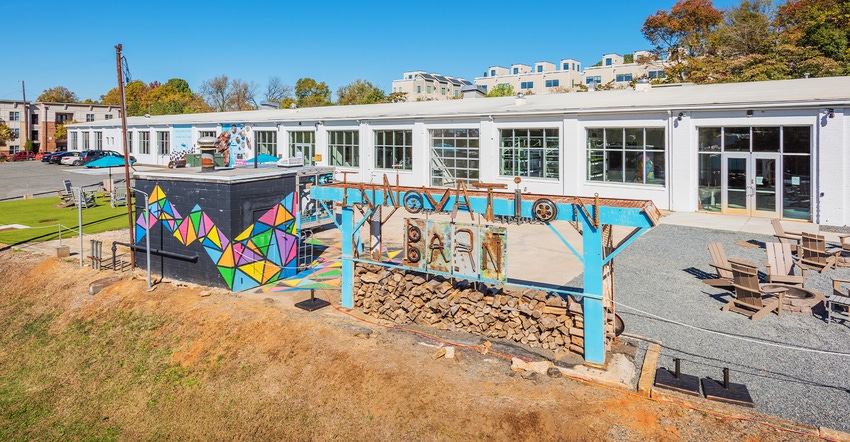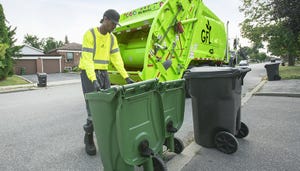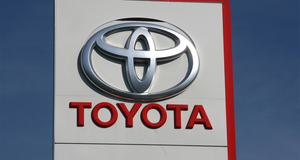Envision Charlotte Showcases Novel Circularity Concepts
Charlotte, North Carolina learned several years ago that 88 percent of its waste was going to landfill, which was filling up fast. That was among the impetuses of picking up the pace on a movement starting to ripple across some cities: a transition to a circular economy to keep stockpiling discards with value in use while creating local jobs. And from that aspiration the Innovation Barn was born, a living lab of sorts that serves as ground zero for this work.

Charlotte, North Carolina learned several years ago that 88 percent of its waste was going to landfill, which was filling up fast.
That was among the impetuses of picking up the pace on a movement starting to ripple across some cities: a transition to a circular economy to keep stockpiling discards with value in use while creating local jobs. And from that aspiration the Innovation Barn was born, a living lab of sorts that serves as ground zero for this work.
The Barn project is run by Envision Charlotte, a private-public collaboration advancing environmental sustainability in its communities.
The city has spent nearly $5 million to renovate the former horse barn turned zero-waste-project hub, which it rents to Envision Charlotte for a dollar a year. The project targets four streams: plastics, organics, textiles, and construction and demolition.
Seven for profit and nonprofit partners work there today, engaging in some pretty pioneering projects. Innovators make building materials from six-pack rings that hold beverage cans together and turn breweries' old grain bags into shopping bags. Volunteers transform old t-shirts into sound panels. A local composter produces fish and poultry feed from rotting organics leveraging black soldier flies.
But there's more going on from this 36,000-square foot space—both in recycling and reuse projects and other types of sustainability programming such as exhibits open to the public, field trips for kids, rental space for events, and outdoor space for workshops.
The exhibits are new. One of them on the horizon will explain the grid energy mix, work in progress to transition to a greener energy society, and what it will take for energy companies to go even further down the renewables path.
Other displays tell stories of where materials came from at the end of their first life, how they can be recycled, and recycling's limitations.
"It's one thing to tell people what you can put in your curbside bin. But suppose you explain how products are made and recycled. In that case, it makes it easier to understand how the process works, why certain items can't be recycled, and to understand challenges such as with multicomponent materials," says Amy Aussieker, executive director, Envision Charlotte.
Charlotte, like many municipalities, has issues with glass. It's heavy and breaks, and there's limited infrastructure to manage it.
"In our city it costs more to ship than it's worth, and then there's the carbon footprint [from transporting it distances], so we are seeing how we can address glass here," says Aussieker who envisions someday launching small processing hubs around the community.
For now, the nonprofit she oversees is taking small but meaningful steps on the glass front, working with local businesses such as ReSource FloorCare, that installs floor coverings like wood, carpet, and porcelain tile. Its patent-pending process uses glass crushed and sorted at the Innovation Barn, which is incorporated in "poured-on-site" floor coating to add strength and durability to the product.
So far, the company has harvested about three tons of local post-consumer glass for testing and installations.
"We are making samples to share with the local architectural and design community and other influencers to make them aware of this flooring system.
"If we can create a nice backlog of work, we can easily divert eight to 10 tons of post consumer glass per year," says Charles Hollar, partner, ReSource FloorCare.
He cites the payoffs of working with the Innovation Barn.
"It's been an opportunity to gain feedback from local designers about their challenges and what new products could best support them. It has taught us how to create consistent processes in collection, sample production, and installation systems. And it has enabled us to work more efficiently with our suppliers and partners."
In deciding how to move forward with a project, Aussieker and her team measure what will be diverted and ask a lot of questions to determine if the economics are there to grow a sustainable business model.
Volunteers power the t-shirt project— it takes two of them two hours to make one sound panel. The question is, can a system be created to sell them at a price to at least break even and create paying jobs while keeping textiles out of landfills? Sometimes it's a no, Aussieker says.
"If we can't make it pencil out is there a different way to do it? Do we change how we collect materials? Or change how companies design or make a product?"
Preventing or minimizing food waste is a central focus. That could be making sure good surplus food gets to people struggling to afford groceries or seeing that what's inedible for humans also serves a purpose.
Partner Crown Compost is running a pilot to examine the viability of creating a business that would make money from black soldier fly larvae while tackling food waste. The company is breeding soldier flies and feeding them the organics it collects.
These insects are very efficient at converting food waste into body mass (larvae), which makes good chicken and fish feed, says David Valder, co-owner, Crown Town Compost.
He anticipates good market opportunity if he can get the process down pat. It's a high-value product but scarce. Valder knows of only one large black soldier fly producer in the U.S.
Then there's the environmental draw. The project has the potential to break down 500 pounds of food waste a week.
"What's cool about soldier fly composting is they quickly break down any organics in a small space," Aussieker says. "So, if we can finetune the recipe the next step would be to figure out how to scale out into the community."
The ideas coming out of the Innovation Barn have been attention grabbers. Aussieker says she routinely fields calls from New York to San Antonio and plenty of cities in between who want to know more about what goes on between the Barn's walls.
Seeing true impact comes from replicating what's worked beyond one city. With that belief, Envision Charlotte is hosting a conference in February 2024 to tell more about its strategies to advance a circular economy.
It's a continuation of a conference the nonprofit convened earlier along its path.
"Now that we've had success and learned what can be done through these projects, we want to bring people here to see the Innovation Barn and to talk about our experiences, so they can learn too," Aussieker says.
About the Author(s)
You May Also Like




